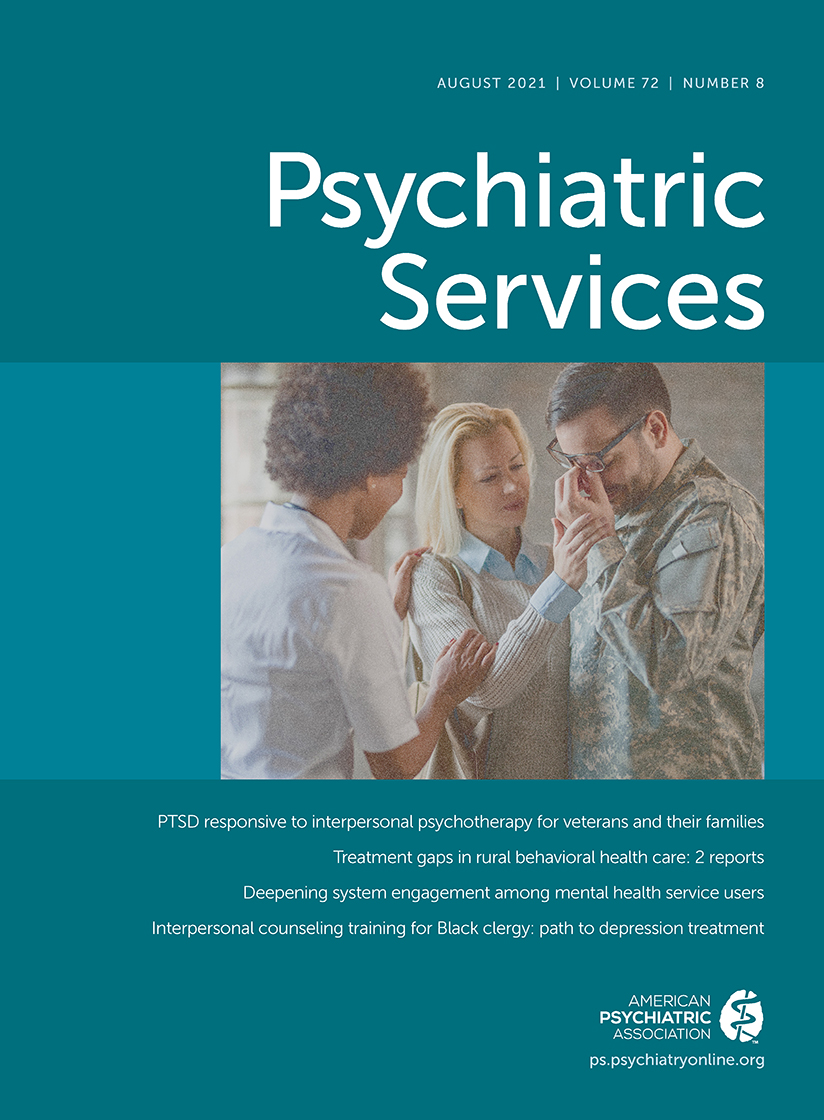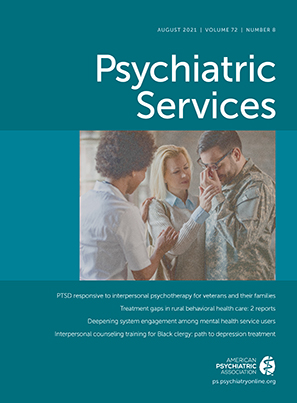The Centers for Disease Control and Prevention estimates that for 2020 the total number of opioid [drug] overdoses will exceed 90,000, making it the largest single-year increase in the past 20 years. To address the increasing need for harm reduction and treatment access, equitable distribution of resources among communities must be prioritized, including by addressing physician bias that may affect care. This issue of
Psychiatric Services includes an article by Franz et al., “Rural-Urban Differences in Physician Bias Toward Patients With Opioid Use Disorder” (
1). The authors analyzed responses to a survey that assessed bias toward individuals with opioid use disorder; respondents were 274 board-certified physicians in Ohio. The study found that compared with physicians in urban areas, physicians in rural areas reported higher levels of bias toward patients with opioid use disorder. The piece concludes that patients living in rural areas face multiple challenges in acquiring effective treatment, including physician bias, and suggest that bias reduction interventions should target health care professionals in rural areas as a means of improving access to health care.
Rural areas sustain considerable morbidity and mortality from opioid use disorders, and we encourage a perspective that goes beyond a narrow focus on physician bias. Because of state-level regulatory changes to prescription drug monitoring and e-prescribing across the country, opioid prescriptions have declined while both nonfatal and fatal overdose rates have risen exponentially. Populations in both rural and urban communities have been devastated by the overdose crisis. Although disparities in access to treatment and harm reduction services are contributing factors, as noted in the article, access barriers begin at a systems level and result from a complex interplay among funding, federal/state legislation, and resource allocation. These barriers cannot be evaluated through a singular lens or addressed through a unilateral psychoeducational approach. The challenge goes way beyond the possibility of physician bias. It is possible that the lack of syringe exchanges, naloxone dispensaries, and buprenorphine prescribers evokes negative feelings and bias toward people who use opioids. It is hard to know what is cause and what is effect.
Snell-Rood et al. (
2) explore the access barriers that thwart efforts to intensify care via referral to county mental health systems and private community providers. These barriers arise from a combination of decreased mental health referral resources, extended waitlist times for patients, and complexities of the insurance system for both patients and physicians. One overwhelming barrier the authors point out is the challenge of finding counselors and physicians who are trained to care for patients with co-occurring mental health and behavioral health conditions. These gaps in the infrastructure either led to patients being refused care because of a co-occurring substance use disorder or the substance use disorder being prioritized in care, with little mental health evaluation and treatment.
Efforts to educate, decrease stigma, and reduce bias among all members of health care are essential pieces of addressing the overdose crisis. We implore researchers to use a health equity lens to approach any recommendations for allocation of treatment resources and to use robust and rigorous scientific methodology while prioritizing all communities’ needs; these approaches can help ensure equitable access to health and health care.

